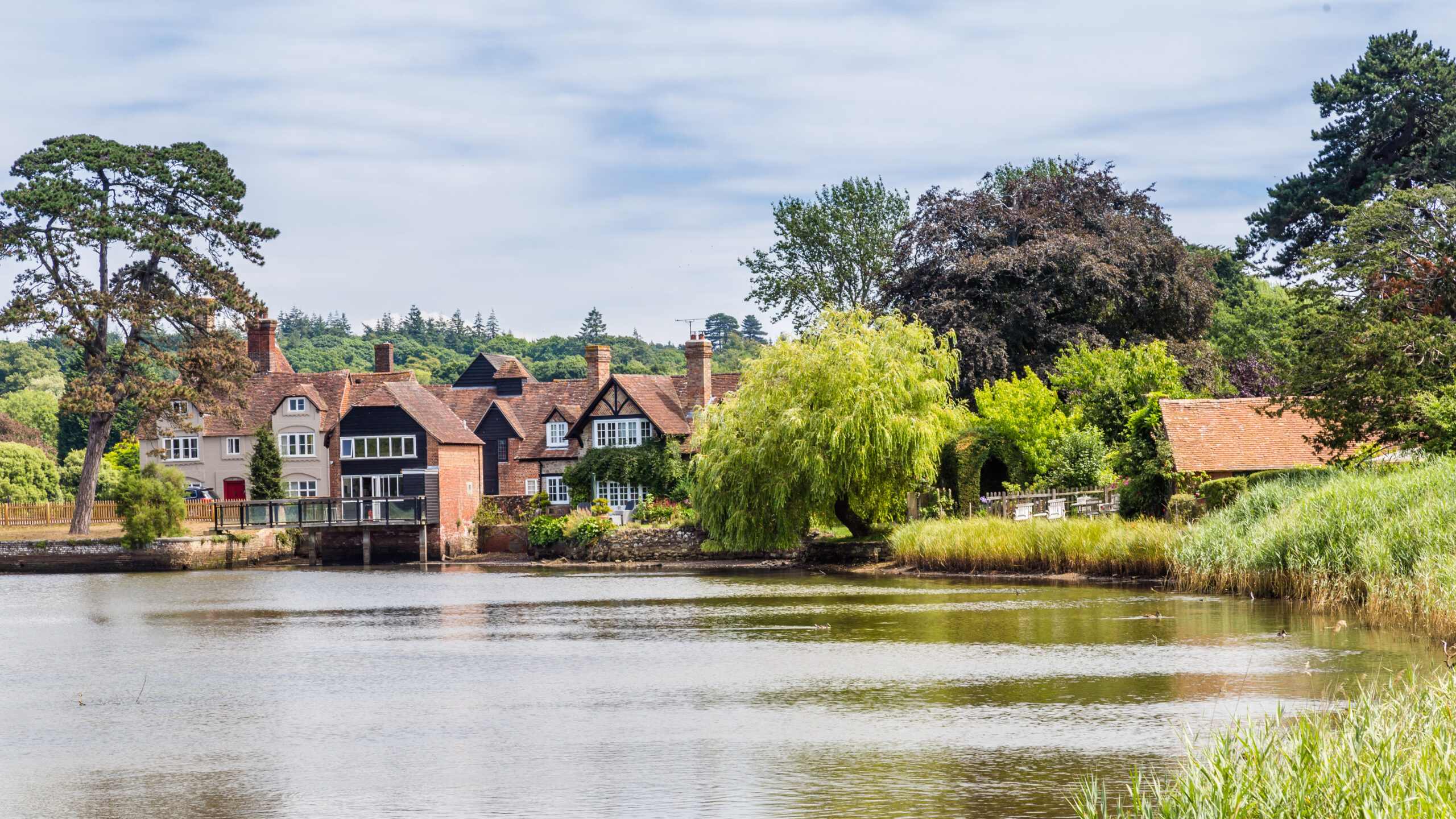Economic uncertainty has many sellers questioning whether to put their property on the market. Whilst this decision comes down to personal preference, if you choose to hold off, you should still consider getting your property affairs in order to ensure a smooth sale when things change.
One of the most common sticking points when selling a property is issues with deeds. Fortunately, most are relatively minor and easy to solve. It could be that you’ve changed your name or the name of your property, but you’ve forgotten to update the title deeds. If your property is registered with HM Land Registry, updating your details should be a simple case of submitting a form and providing some documentation. Regardless, this can hold up a sale, so it is worth getting it done before selling.
However, things can get much trickier when dealing with unregistered property.

Do you have to register your house with Land Registry?
The introduction of compulsory registration created a need to register titles when there was a trigger event. Trigger events can include a sale, grant of a lease or a remortgage. This policy aimed to make sure all land was registered by 2020. Despite this, a large number of properties remain unregistered.
How do I know if my house is registered with Land Registry?
If you’ve owned your property since before 1990, there’s a good chance it is unregistered. The easiest way to find out is to speak to a qualified conveyancer.
However, the deeds you hold can also give you a clue. Land Registry only keep a digital copy, so if your property is registered, you’ll probably have a set of computerised deeds rather than or as well as your physical ones. Alternatively, you could check your correspondence with your solicitor from when you purchased your property to see if it is mentioned.
It is important to remember you may not hold the deeds for your property. If you don’t know where yours are, keep reading for advice on how to find them.
Can you look at Land Registry for free?
It is free to search Land Registry and view property summaries. However, it costs £3 to download either a title register or a title plan. Some title plans can’t be downloaded online and must be posted instead. If you can’t download your title plans online, postal delivery will cost £7. You’ll need to create an account on the Land Registry website before you can download or order any title registers or plans.
Whilst you can access these documents yourself, it is usually much quicker and easier to have a conveyancer do it on your behalf.
How long does it take to register a property with Land Registry?
Backlogs at HM Land Registry have significantly increased the time it takes to register properties. Currently, a general registration with no complications takes roughly 3-4 months (although some registrations do come back sooner) – a significant increase on the 5-7 days it took pre-covid.
If you’re selling your property and you can’t afford to wait 3-4 months, Land Registry does offer a free expedite service. To be successful, you must apply to have your application fast-tracked and provide evidence that waiting would create hardship. For example, it could affect your mortgage application or further sale.
It is still worth bearing in mind that Land Registry may not accept your application, and even the process of gathering evidence could slow down the sale of your property. According to HM Land Registry, ‘they are currently processing around 1,000 fast-tracked applications every day and complete 95% of them within 10 working days‘.
How long does it take for Land Registry to update?
The Land Registry will update as soon as your application is accepted. However, there is no way to say how long that will take.
Your application officially starts when it is submitted through the Land Registry portal. Once submitted, Land Registry may raise preliminary enquiries. Following your response – if required – your application will join the queue to be processed. Land Registry will then consider your application and either raise additional questions or register it. If successful, Land Registry will add your property to the Register immediately and notify you.
Can I register my own unregistered property with Land Registry?
Whilst you can try to register your property yourself, we’d strongly advise you to contact an experienced conveyancer who specialises in handling unregistered land. The process is well known for being incredibly tricky to manage, and there are still some firms out there that won’t deal with unregistered land.
Here at Scott Bailey, our professional conveyancing team have the knowledge and understanding to assist with numerous conveyancing services, including registering property with Land Registry, which will help you ensure the title to your property is in good order when you look to sell.
How to register land in your name?
For all the reasons listed above, the best way to register land in your name is to contact a specialist conveyancer with extensive experience handling unregistered land. They will guide you through the process and manage the registration on your behalf. It is often much less expensive than people expect, and you know you’re in safe hands.
Are house deeds and Land Registry the same?
No, house deeds and the Land Registry aren’t the same thing. The Land Registry holds the deeds of registered properties. Once registered, property owners can use the Land Registry to change and update their deeds.
Who holds the deeds to my house?
Unfortunately, there’s no simple answer to this. If you don’t know who holds your deeds and your property isn’t registered, it could be any number of people or companies, including family members, solicitors or banks. In some cases, deeds can even be split up and held by multiple parties.
A good starting point would be contacting the solicitor that acted for you when purchasing the property, your mortgage provider (if there’s a charge in favour of the bank, the bank could hold the deeds), and any family members who could potentially hold them.
Narrowing down the list can be slow and arduous. It is another reason not sorting out your property affairs until you decide to sell can be risky. Locating deeds and registering a property could slow the process down significantly and even lead to buyers dropping out.
Is Land Registry proof of ownership?
Your title deed is proof of ownership. The Land Registry is the facility that holds the deeds. The Land Registry title deed has three sections – property register (what the property is), the proprietorship register (who owns it), and the charges register (third party rights and covenants that affect the land or any charges affixed to it).
If you need help getting your property affairs in order, Scott Bailey is here to help. Our team of expert conveyancers have extensive experience handling a wide range of property matters, including managing Land Registry applications. Contact us today to get started.










